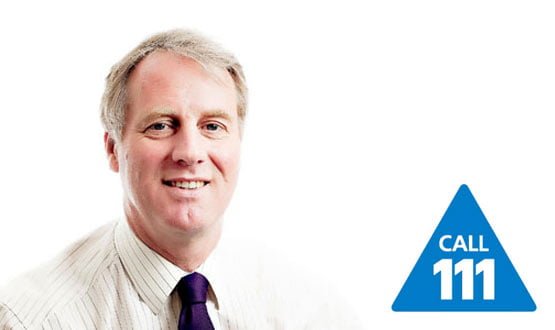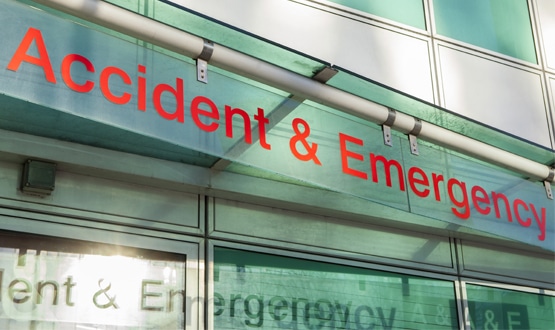Directing calls to 111
- 11 September 2012

When the government announced plans to scrap its 0845 health advice telephone service in favour of the new 111 number, the future of NHS Direct looked uncertain.
Yet, after a slow but steady start, the organisation has been sweeping up many of the available NHS 111 contracts; most recently winning a deal worth £40m – £60m covering all primary care trusts in the north west of England.
To make this happen, NHS Direct has had to reshape itself to become more like a commercial operator, bidding for contracts with local commissioners and adapting to meet their needs.
A bit of background
NHS Direct was introduced as a centrally commissioned service in 1998, providing a 24-hour telephone advice line staffed by nurses.
The service was embedded in the health system and generally well regarded by the time former health secretary Andrew Lansley unexpectedly announced the national roll-out of NHS 111 in August 2010.
Following Lansley’s intervention – on a trip to a Hampshire hospital designed to catch the Sunday papers – the Department of Health set a deadline for the free urgent care number to replace the 0845 number provided by NHS Direct from April next year.
Calls to the new service are taken by trained non-clinicians, who can pass information and callers onto clinical staff. The mix between the two varies, but is the cause of much angst amongst some GPs.
Bolstered by early figures from three pilot sites, Doctors fear the new service is risk-averse and increasing the pressure on health services rather than encouraging self-care.
There is also concern that existing providers, including established out-of-hours co-operatives, are being hit by NHS 111, and that emerging clinical commissioning groups are being given little say in placing the new contracts.
Despite these concerns, the roll-out is going ahead and just eight clinical commissioning groups took up the government’s offer of a six-month extension to the original April deadline.
Nobody knows for sure how many calls there will be to the new number, but the DH is expecting something like 15m calls a year – which is three times what NHS Direct received.
Changing shape
As of mid-July, NHS Direct was the preferred provider in three areas of England, covering just 3.8% of the population. However, it has recently won a spate of large contracts and is now the preferred provider for more than one third of the country.
NHS Direct chief executive Nick Chapman says it was a big challenge for his organisation to go from being a single contract, centrally commissioned service to one that has to compete for its future income through multiple local competitions.
He now sells NHS Direct as a specialist provider of remote assessment services, which has been delivering on NHS 111 for some time, and which has taken more than 500,000 calls to date.
The organisation has trained up 240 staff to use the NHS Pathways triage tool that it uses to underpin the new service, and has the experience and resources to get the service up and running on time, he says. “We have got a lot of expertise to offer of providing remote assessment for patients and that’s not an easy thing to do.”
Uncertain times
Despite this, Chapman added his voice to the increasing number of calls for the roll-out of NHS 111 to be slowed down earlier this year, saying this was needed to ensure proper engagement by commissioners.
“We know how important it is that each local health community feels that the service provided by 111 is their service and not something imposed on them nationally,” he explains.
Chapman is speaking from experience. He believes the centrally commissioned model was necessary for the coherent development of the national NHS Direct service, but acknowledges that this meant local commissioners did not really own it.
“There was quite a lot of work to be done to make sure the service we provided was understood and valued by local health communities,” he explains.
Chapman feels concerns were listened to, given that CCGs were given the chance to apply for an extension. He also feels NHS Direct itself is getting more clarity about its future role.
“By the end of October, when all bar a very, very few 111 services will have been decided, and when we have had further discussions on other services, we expect to be able to talk to our staff about what the footprint of the organisation will look like,” he says.
The organisation has around 2,750 staff of which 1,000 are trained nurses. An efficiency drive and a move to more web-bases services means staff numbers are lower than five years ago and the number of staff needed for the future is evolving as demand becomes clearer.
“We don’t know really quite yet what the final shape of NHS Direct in the future will be, but it will be different from where we are now,” Chapman admits.
In areas where NHS Direct did not win the 111 contract, staff will likely be transferred to the new provider. And as an accredited NHS Pathways provider, NHS Direct will not only be training its own staff, but staff for other providers of the NHS 111 service that use the triage tool.
Listening to the commissioners
Chapman believes the NHS is getting more customer and end-user focused while commissioners are getting sharper at specifying and thinking through what they want to buy. “This is very different for the top down command and control type of organisation that the NHS used to be,” he says.
He adds that NHS 111 must develop to encourage more self-care by patients, in order to keep them away from expensive health services where possible.
NHS Direct’s bids for the new service have involved an expansion of the telephone clinical assessment currently provided under 111 contracts, to give callers more alternatives to face-to-face care. It is also offering an expanded health advice service, based on its current experience.
Chapman says these offerings will not become part of the new service “overnight”, but will be part of ongoing discussions with commissioners regarding how to get the best results out of the telephone assessments.
“Part of what we have been saying to commissioners is that we have capabilities which can add to remote assessment by clinicians, and if they want to buy more of that as part of their 111 service that’s something we have experience in providing,” he explains.
“The value and return on investment economically is proven and it will be in local health communities’ interest to invest in greater remote clinical assessment to help patients self-care and reduce the intensity of use of NHS services.”




